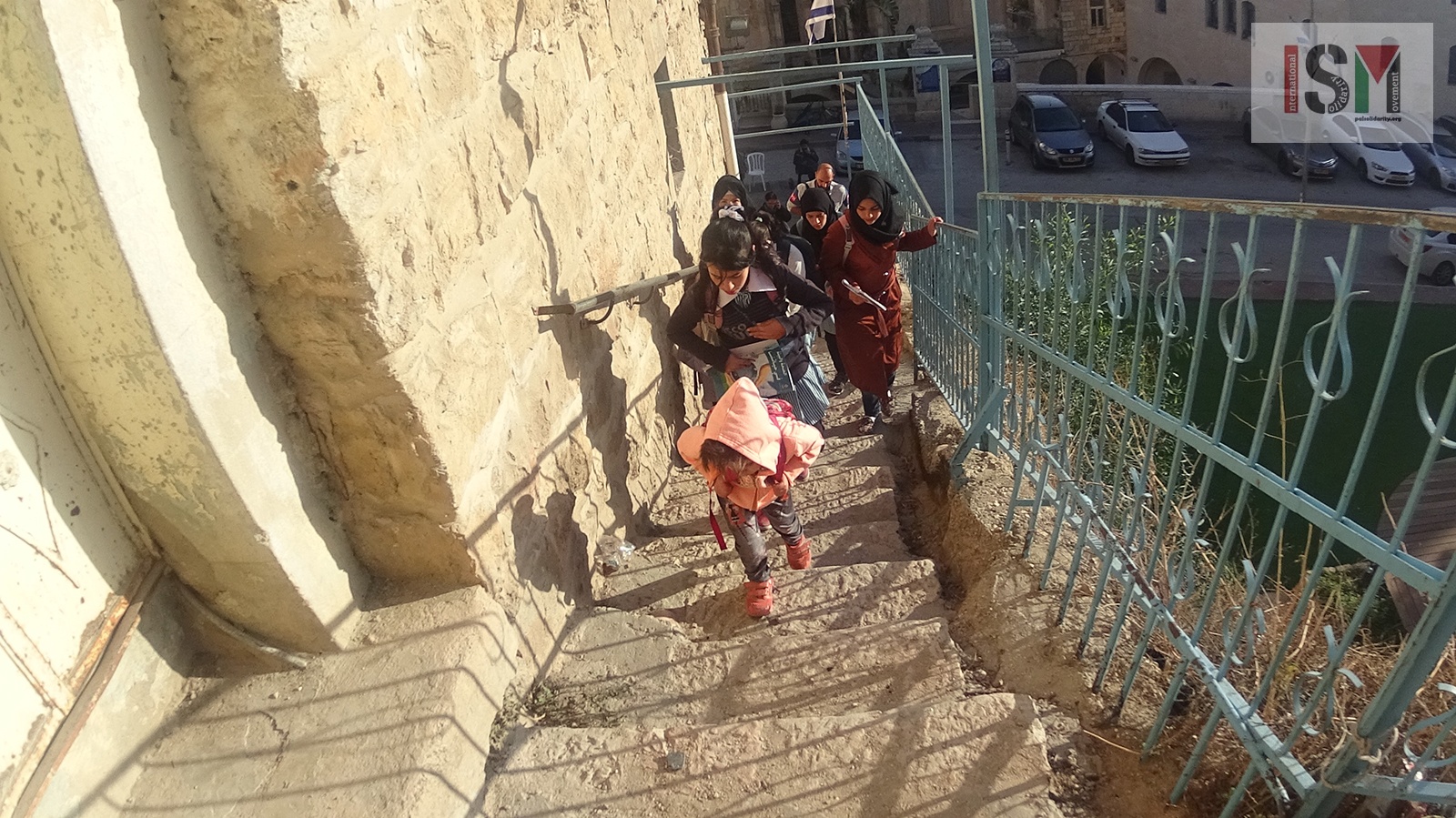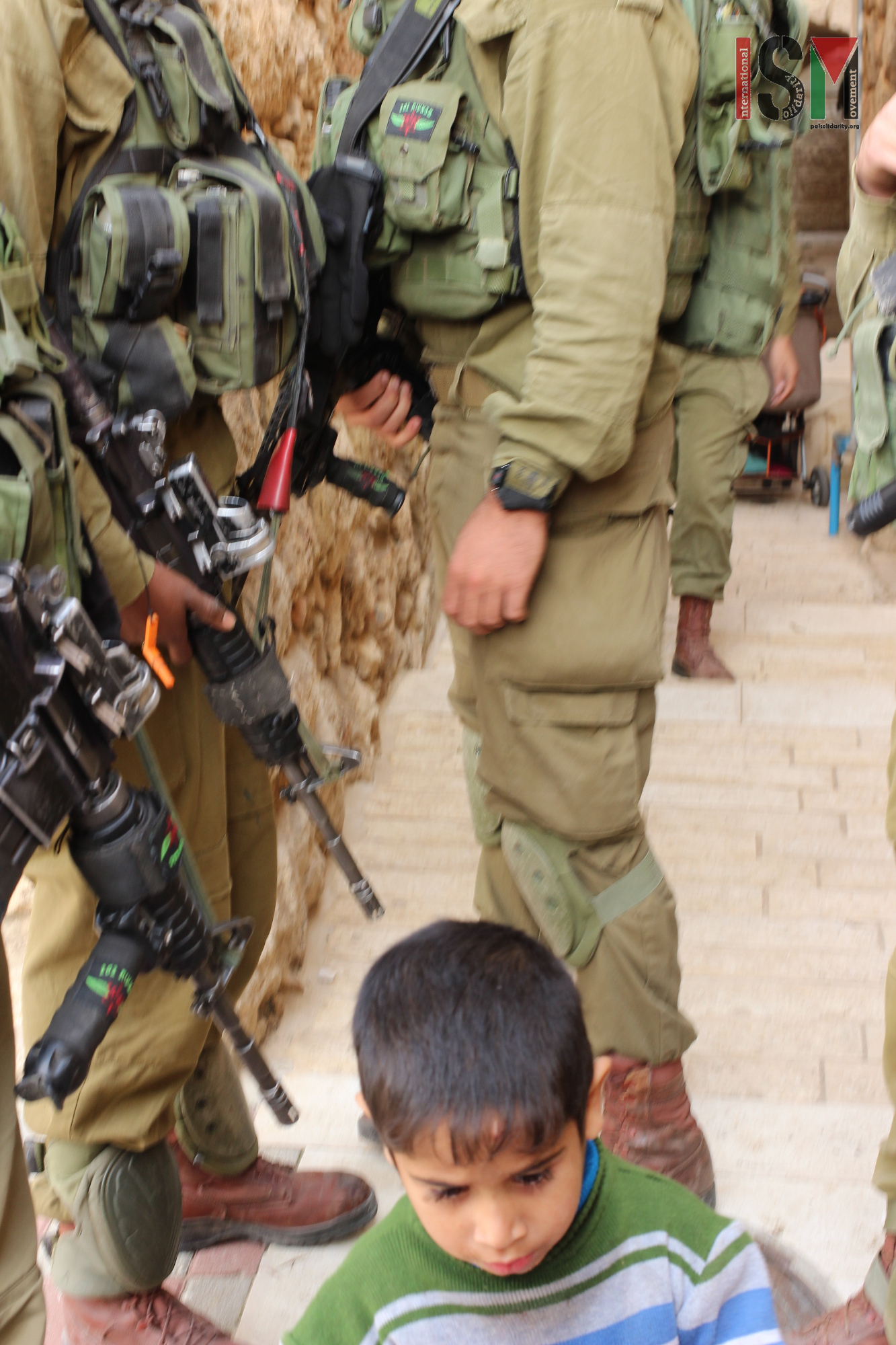Category: Hebron
-
Israeli forces and settlers increase efforts to force Palestinians out and silence observers
21st November 2015 | International Solidarity Movement, al-Khalil team | Hebron, occupied Palestine Monday 2nd November 2015, Israeli forces again attempted to prevent international observers from monitoring a checkpoint in a flashpoint location in occupied al-Khalil (Hebron). Settlers from the illegal settlements in al-Khalil physically attacked internationals while soldiers where standing idly by watching. As…
-
Israeli forces terrorizing Palestinian neighbourhood on a daily basis
19th November 2015 | International Solidarity Movement, al-Khalil team | Hebron, occupied Palestine Monday, 16th November 2015, Israeli forces raided and searched at least ten houses in the Abu Sneineh neighbourhood in occupied al-Khalil (Hebron). Israeli forces entered several homes in the neighbourhood, trapping women, children, and whole families inside. This has been an almost…
-
Eye-witness account of a murder: ‘They didn’t want her alive, they want her dead, they meant to kill her”
16th November 2015 | International Solidarity Movement, al-Khalil team | Hebron, occupied Palestine On 25th October 2015, 17-year old Dania Arsheid was gunned down by Israeli forces in front of the Ibrahimi mosque in occupied al-Khalil (Hebron) and left to bleed to death. One of the shopkeepers nearby the Ibrahimi mosque witnessed the events leading…



